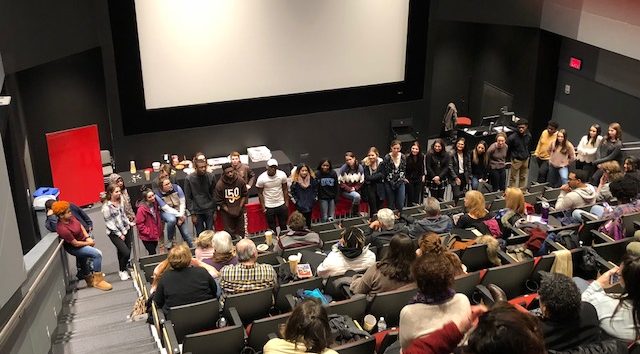“My work can change the way my subject is perceived by the people who surround him/her and can impact reputation or safety for years into the future.”
I thought this line was very interesting because it reminded me of the assignment we had to do in class with the different statements and how ethical or unethical those statements were, compared with one another. One of the statements during that assignment was if it is ethical to change what someone says or edit it in a certain way that does not sound like what the person originally said. Although that statement and the one Kirsten Johnson makes are not the same, they do relate and bring up the idea that the way someone is can be altered on a video or can be seen differently by different people. It brings up the idea that it kind of is inevitable that this might happen. The filmmaker is well aware that this might happen but at the same time she will not stop her artistic process because a vision of someone might be altered. The statement we had talked about in class was different because it talked about it in a way where the filmmaker knew very well that the way he or she was editing the video was changing what the person was truly saying and therefore purposely changing the way they appear but I like the way Kirsten Johnson mentions it. Her statement also does not necessarily imply that the person will automatically be perceived negatively but it just means that a way someone is seen can be altered. I have only seen the first ten minutes of “Cameraperson” in class but from what I have seen none of the people filmed are shown in a negative light. Yes, the way they appear might be very different from how they appear to people around them without a camera but the change does not have to be negative. This statement is also important because it brings up the idea that films do impact people, have a purpose, can make people change their minds and that they’re also here for filmmakers to take risks and be “bold” so it makes sense that someone’s reputation can be impacted or changed and that the effect will hopefully carry on for many years.
You normally don’t hear a lot of filmmakers owning up to the fact that this might happen and I like that Kirsten Johnson is completely open about it and in her entire director’s statement she does not apologize at all for what might go wrong or “errors” if you can even call them that. She is very well aware and does not make excuses for the decisions she makes. For example, she mentions as well that she follows stories that the director does not want to follow, therefore making decisions on her own and deciding what is worth filming.
